Sub-regional Online Consultation on the First Draft Text of the Recommendation on the Ethics of Neurotechnology
Article published on 10-07-2024
The National Commission of Romania for UNESCO, in collaboration with the UNESCO Chair from the University of Bucharest and the Research Center in Applied Ethics of the University of Bucharest (Centrul de Cercetare în Etică Aplicată - CCEA), has organized on 26.06.2024 a sub-regional online consultation on the first draft text of the Recommendation on the ethics of neurotechnology.
The event saw the participation from representatives of 14 countries (Armenia, Azerbaijan, Bulgaria, Croatia, Czech Republic, Estonia, Greece, Hungary, Lithuania, Poland, Republic of Moldova, Turkyie, Ukraine, Romania), bringing together members of the UNESCO Ad Hoc Expert Group and stakeholders from National Commissions for UNESCO, governmental bodies, academia, industry, and media, as well as from the relevant section of UNESCO.
As Dr. Madlen ȘERBAN, Secretary General of the National Commission of Romania for UNESCO, emphasized in her opening remarks the presence of experts in ethics, neurology, and technology, as well as representatives of society from various geographical areas, aimed to encompass all perspectives the recommendation will offer. Equally valid is the importance of research related to the ethics of science and technology, therefore adequate investment should follow.
Prof. Univ. Dr. Viorel VIZUREANU, Co-chair of the University of Bucharest UNESCO Chair and Dean of the Faculty of Philosophy, highlighted critical questions for this challenging yet necessary stage for the future of humanity. He underscored the fundamental issue of neurotechnology, which presents a unique challenge due to its unpredictable and potentially irreversible effects, affecting the core of human existence. However, he also warned against over-regulation, which could hinder scientific research and potential solutions to humanity's pressing problems.
The event was moderated by Conf. Univ. Dr. Emilian MIHAILOV, Director of the Research Center in Applied Ethics of the University of Bucharest, who led discussions on the key aspects of the Recommendation and encouraged participants to express their different opinions.
Dafna FEINHOLZ, Chief of the Bioethics and Ethics of Science and Technology Section of UNESCO, provided context by emphasizing the importance of linking science and technology development to values that promote and preserve human rights and fundamental freedoms. She highlighted the necessity of a normative instrument, such as the Recommendation on ethics of neurotechnology, to address the misuse of private information outside the medical network. She presented also the next steps in the process which include also a global consultation on a dedicated platform accessible here.
In her capacity of UNESCO AHEG member, Dr. Ioana Roxana PODINA, Associate Professor at the Department of Applied Psychology and Psychotherapy of the University of Bucharest, summarized the work of the Ad Hoc Expert Group (AHEG) on the ethics of neurotechnology and introduced the first draft of the Recommendation. She emphasized the fast-expanding field of neurotechnology, its medical and technical advancements, and the significant ethical and societal concerns it raises. Key values promoted in the draft include human dignity and the respect of fundamental human rights, health and well-being, solidarity and knowledge sharing, respect for diversity and inclusivity, responsibility and accountability, sustainability, and environmental protection.
Among the proposal and comments formulated during the vivid debate we mention the opinions on the importance of including emotional and psychological concepts alongside neural ones, as highlighted by Martina MALCHEVA from Bulgaria.
Madlen ȘERBAN highlighted the importance of inclusivity in the principles, as well as the need for values to strengthen the cooperation, protection of dignity and autonomy. In addition, keeping the pace with technological advancements from all principles and values observance Is critical. Concerns were raised about whether society would keep up with technology or be overtaken by it.
Interventions from participants addressed transparency, security against information misuse (Mr. Martin JUURIK from Estonia), solidarity, and cooperation (Ms. Ismini KRIARI from Greece). The issue of protecting vulnerable groups, including children, youth, and women, was also discussed (Ms. Emile RADYTE from Lithuania) cautioning against using protection as a reason for exclusion.
The discussion also focused on several key points: the special category of neuro data, the distinction between invasive and non-invasive neurotechnology, and the balance between curative and treatment prioritization. The inclusion of artificial intelligence and open science brought up additional concerns about data security and the potential limitations on freely sharing technologies and knowledge among different research groups.
UNESCO's role in promoting the exchange of practices across different countries and encouraging international cooperation was emphasized. The need for adequate funding and resources to understand and implement the Recommendation was also highlighted.
The conclusions from the consultation will be compiled into a report prepared by the Research Center in Applied Ethics of the University of Bucharest (Centrul de Cercetare în Etică Aplicată - CCEA).
The Romanian National Commission expresses gratitude to all participants for their valuable contributions, which have provided solid grounds for improving the UNESCO Recommendation on the ethics of neurotechnology.



